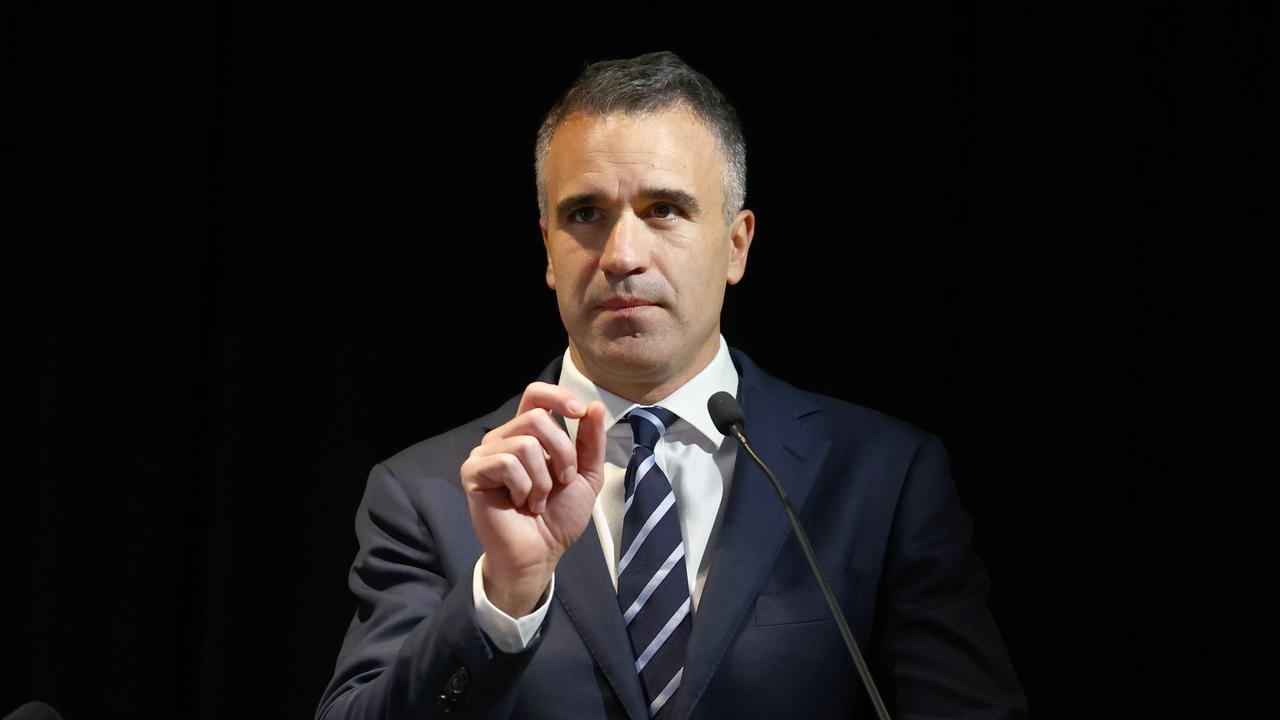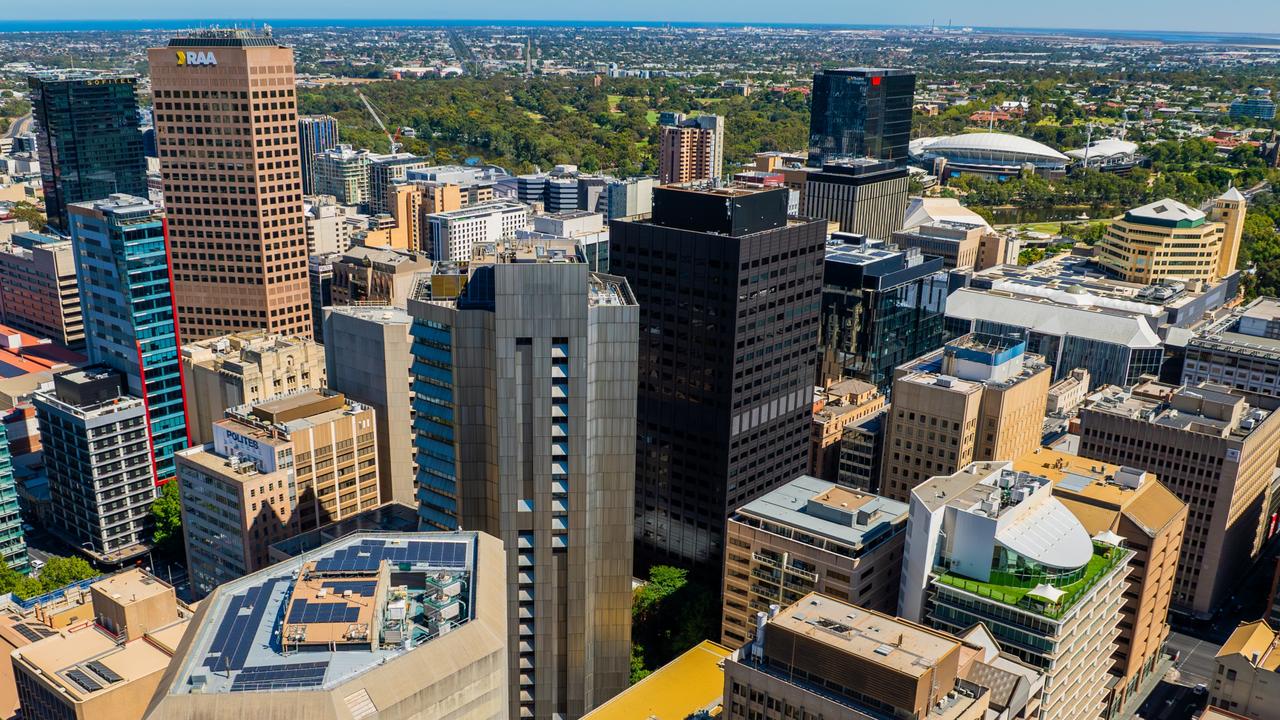Future bright: SA data scientist awarded scholarship to study at MIT in Massachusetts
MIT’s bigdata Living Lab in Adelaide is a melting pot of the smartest minds: and now the favour has been returned, with one of South Australia’s brightest talents on campus at the MIT Media Lab in Massachusetts.
Future Adelaide
Don't miss out on the headlines from Future Adelaide. Followed categories will be added to My News.
Since the doors to the MIT bigdata Living Lab opened in Adelaide in 2019, some of the brightest South Australian minds have come together to collaborate on ways to drive the state’s economic and population growth.
And now that collaboration has re-crossed the Pacific Ocean, with the export of one of South Australia’s brightest young minds to MIT’s Cambridge, Massachusetts, campus in September. Twenty-three-year-old data scientist Tobin South has joined the MIT Media Lab (nicknamed the Star Fleet Academy) for a five-year placement as a doctoral student under the tutelage of Professor Alex “Sandy” Pentland, professor of media arts and sciences and hailed as the father of modern social physics.
South’s connection with the MIT bigdata Living Lab arose while working on his Master of Philosophy in Applied Mathematics and Data Science at The University of Adelaide, focusing on using mathematical tools to understand misinformation in social media. A component of his studies required collaborating with local scientists and researchers on diverse projects. “One of those collaborations was with the MIT bigdata Living Lab at Lot Fourteen, a mixing pot where minds can come together and work on interesting problems, and in particular use data to add value back into the state,” he says.
“One of the big focuses for me is, there are lots of interesting questions in the data that is constantly being produced around us, but answering those questions is not always easy: it takes a fair amount of work to build systems that add value back into the economy and are interesting to people.”
During his time at the lab, South’s research focused on how the diversity of skills in the workplace can help boost economic resilience and grow employment opportunities. The result of his endeavours was to be awarded a prestigious Fulbright Future Scholarship to undertake doctoral studies in the US. “The scholarship funds the entire PhD, which is really generous – not many of those exist, especially for the US,” he says. “You can go to any university in the US to do your PhD for five years with complete freedom to work on whatever you want.
“I looked at lots of universities but there was an obvious choice, which was to work at MIT under Sandy Pentland who is famous for leading a frontier of data and innovation in the digital economy. It’s brilliant – I’ve come to Cambridge and I love it here. Just as the MIT bigdata Living Lab is a meeting of smart minds, Cambridge is that on steroids. There are so many smart and interesting people bumping heads and exchanging ideas.”

South is employing that fusion of beautiful minds to shape the subject matter of his as-yet undefined PhD. “I had done misinformation research in Adelaide and we were developing an interesting toolkit using applied mathematics, so I came here thinking I would work on and extend that, but Sandy’s advice to me was, ‘Don’t come with any plans – whatever ideas you currently have, get rid of them. Come here, talk to people, have those minds exchanging ideas and something will emerge that is better than you could ever come up with on your own’,” he says.
“So it’s still a bit undefined. There are interesting questions about using data to understand how populations behave at scale – how do you design interventions in a data-driven way to nudge people towards healthy behaviours? Vaccination might be one example, as people get misinformation from different data sources so how can you, with a limited budget, help support a vaccination drive in communities?
“A big thing I’m working on is how to do that in a privacy preserving way. Data is a new form of currency in our economy and having data is incredibly valuable to being innovative – but no one wants their data to be exploited. So how do you preserve people’s privacy and still use that data to create informative interventions to help society?”
At the end of his studies in the US, South’s intention is to bring his research and learnings back to Australia. “I’m excited to be able to bring the technologies we work on to Australia and keep innovating, deploying and building within the Australian economy,” he says. “America is developing lots of cool tech and Australia has some cool tech, so it’s important to connect those dots and have that exchange of technology to keep us competitive.”
Teaching and entrepreneurship are also on his mind: with experience in co-ordinating and teaching data science and mathematics courses, he is keen to continue his role as an educator at MIT, schedules permitting. “As a first-year student sitting in a classroom, it was the tutors who had enthusiasm and excitement who pushed me to follow the path I did,” he says. “I probably wouldn’t have chosen to do a mathematics degree if I didn’t see someone older than me doing a mathematics degree, having fun and doing well at it.
“I am who I am today because I spent many years in Adelaide interacting with really cool people who pushed me and introduced me to new ideas.”



